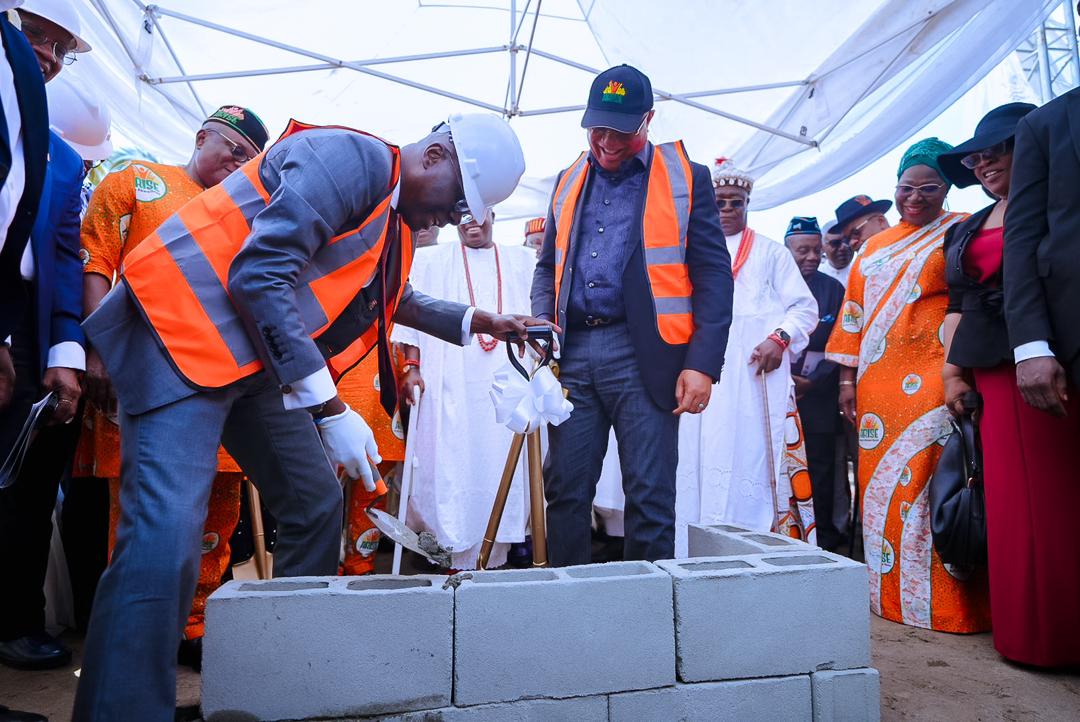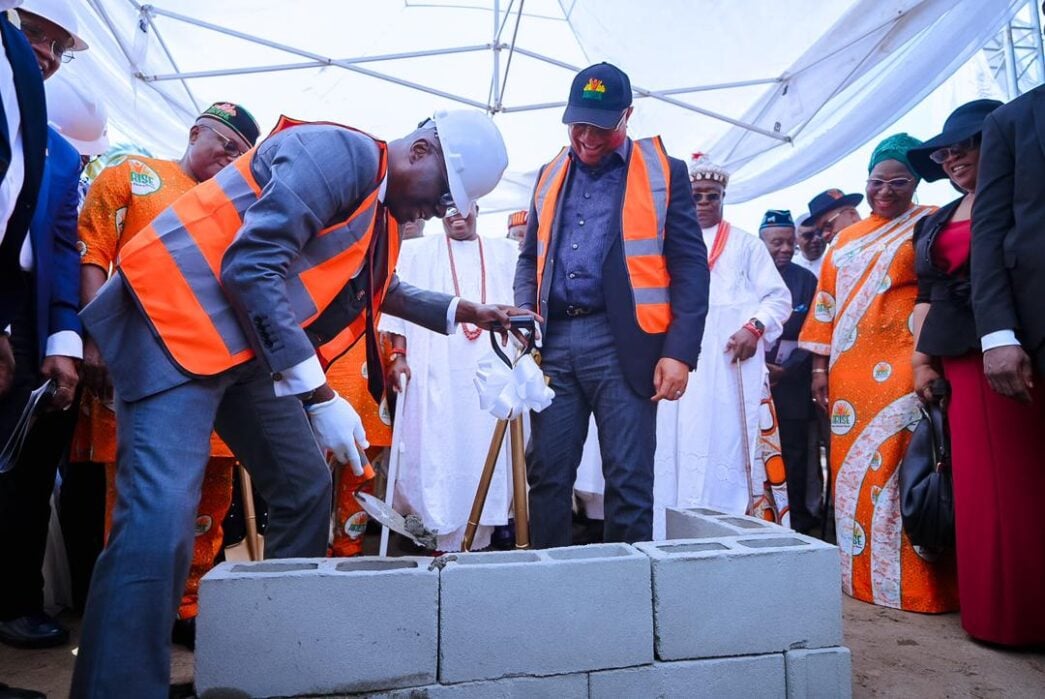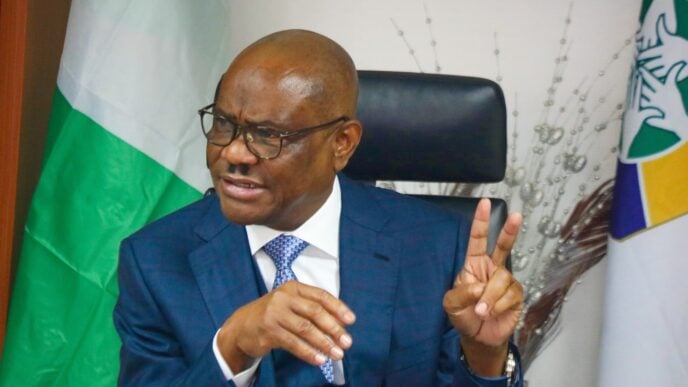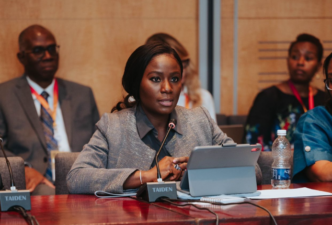BY IBORO OTONGARAN
Two roads diverged in a yellow wood
And sorry I could not travel both…
Then took the other, just as fair,
I shall be telling this with a sigh
Somewhere ages and ages hence
–Robert Frost
The title of this intervention is a tribute to a poem that performs for me a therapy every time I read it—and I have read it countless times, each instance with undiminished ecstasy. The poem is Robert Frost’s classic, The Road Not Taken. The reason this contribution takes inspiration not from Adam Smith or John Maynard Keynes, but from a poet, Robert Frost, the Library of Congress Poet Laureate, who left an immortal verse on the critically important question of the road to the future, is simple.
Advertisement
The economy is too important to be left to economists, as many have said. So not being an economist, I choose to focus on the man-in-the-street questions in any conversations of economic interest and seek answers that the ordinary folks can instinctively relate to. I understand that as the chief software architect for Microsoft, Bill Gates was concerned with the general outlines of what the market wanted and left the technical details to the experts. So I am going to take a folksy path on the subject of development in Akwa Ibom State. Let the experts worry about the technical details.
The conversation on the road to the development of Akwa Ibom has come alive again on the heels of the ground-breaking ceremony for the construction on Victoria Island, Lagos, of an 18-storey high-rise brand named Ibom Towers. The state governor, Pastor Umo Eno, initially stoked interest in the matter about two months ago in a gush of project intentions underscoring the policy goal of his administration.
Governor Eno had announced that he would build an artificial lake in Uyo, develop deluxe estates for government big shots, roll out a new set of housing for heads of local councils, build a three-star hotel in Abuja and cap off the extravaganza with an 18-storey luxury skyscraper in Lagos to be known as Ibom Towers.
Advertisement
Announcement of the project intentions was followed by an apparently orchestrated and frenetic defence of government priorities, particularly the 18-storey tower, the 3-star hotel and the artificial lake as a means to diversification of revenue sources for the state. The defence attracted a somewhat muted pushback, probably because those with a contrary view on the government’s project to-do list did not think that what the government announced was anything more than kite-flying. The intentions were so inconsistent with the development needs of the state that only a few would actually have thought that the government would follow through with them. It also seems the opposition was like, well, the defence is fine. Whatever can bring more money into the till with which the government could provide services to the people would always be welcomed.
Though they didn’t speak out volubly, a lot of people, I imagine, must have demurred and concluded that the building of an artificial lake in a riverine state as a pathway to revenue mobilisation and diversification rings weird, however one looks at it. The pitch from the artificial lake apologists inviting those who differ to savour the beauty of artificial lakes in Dubai misses the point. Dubai is in a desert. The Emirati leaders, by focus and right priority, gave unto their country what God did not give them, the direct opposite of what the leadership in Akwa Ibom State wants to do with the artificial lake project. Here they want to spurn divine bountifulness in water resources and embark on an Alice-in-wonderland journey!
The justification for the other projects is equally hard to see. The planned luxury gardens are not what the state needs now. The vast majority of the people in the state are so poor they cannot afford housing, even bare-knuckle roofs over their heads, a situation that calls for investment in mass housing, rather than in luxury estates. The claim of the potential viability of the 18-storey rental edifice in Lagos is bogus.
There is a deja vu ring to it. It reminds us of all the projections by the government of the day at the time of the 21-storey so-called smart building in Uyo, now renamed Udom Emmanuel Towers. The Uyo skyscraper, whose cost is a guarded secret, has just one tenant, which is the Bank of Industry, more than five years after it was completed and put on the market, representing unthinking sterilisation of public funds, which have more immediate relevant uses.
Advertisement
Even the Bank of Industry, I learn, is in the building rent-free in a bid to mitigate the most damning optics of a completely vacant monument nearly six years after it was built. The hotel in Abuja will be equally a regrettable misstep. The challenge with these government choices in project selection is not really about their being located outside the state, though that is also an added downside.
The real issue is that none of these ill-advised projects will change the development trajectory of Akwa Ibom State as the poorest state in the South-South, where unemployment, lack of access to electricity, potable water, and other negative human development indices are above the average in the region. The reason for such a pessimistic picture is that these projects cannot impact the fundamentals of the economy of the state.
Such projects foster only the luxuriation of a “local enclave economy.” They are not connected to the lives and struggles of the vast majority of Akwa Ibom people. Apart from the tiny few, around 0.01% of the population, who will skim off the procurement contracts for these projects, Akwa Ibom people stand to gain almost nothing from them. How much has the mass of our people profited from the Udom Emmanuel Towers? The tiny elite with access to power had pocketed their cut in the forms of commissions and margins on that project procurement contracts, but about six years after the people of Akwa Ibom state are still waiting for their payday from that investment.
Yet these unreflective commitments of state resources are against the backdrop of serious development needs facing more than six million people, whose welfare demands that most, if not all, spending decisions should be based on the elementary imperative of economics as a field that is concerned with rational application of scarce resources that have alternative uses.
Advertisement
In my judgement, the compelling alternative use for the N50 billion to be sterilised, if not wasted, in the tower in Lagos is the supply of adequate and quality public power in the state. What makes this a default recourse is that the government would not have to start from scratch in any plan to deliver reliable and quality power to the state. Ibom Power, subpar as it is operating currently, can be revamped and optimised to function as a game-changing infrastructure for the state.
Unlike the tower in Lagos or hotel in Abuja, the positive impact of a restreamed and optimised Ibom Power will be felt in every home, every community, every office, every business, big or small in the state. It will deliver the needed oxygen to energise small and big businesses and serve as the reason for owners of investment capital elsewhere to think first of Akwa Ibom when they are considering where to take their money to because a key expense item in their budget would have been definitively moderated by a wise priority of government on power.
Advertisement
I learned from professionals in Ibom Power that the budget needed to refurbish or procure new turbines for the power utility and string new transmission and distribution lines is within the finances of the state. I learned that even if the entire power plant were to be replaced along with transmission and distribution lines to generate 70mw of power, which would be more than enough to meet the current power need of the state, the maximum cost outlay would be around $90 million (or N150 billion at the going exchange rate).
If the costs of the Lagos tower at N50 billion, Abuja hotel, the artificial lake in Uyo, and the luxury gardens are tallied up, we would end up with what it would take to deliver adequate power to the state for the critical mass impact that is far in excess of the combined benefits of the advertised projects on the to-do list of the current government. It is interesting that while the Akwa Ibom state government is overlooking the all-important place of power in the development calculus, a heavily distracted governor Sim Fubara of Rivers state has the presence of mind to invest in power to drive the economy of his state. The governor of Ekiti state is also making power the driving force of the development plan of his government.
Advertisement
We cannot say it too strongly or too often. Unless the government decides on development priorities that empower the critical mass in the state and help them to make more money for themselves, the state will remain ensnared in mass poverty. This was the reason I sent a note to the state governor to express my appreciation for his commitment to initiate agriculture-led industrialisation of the state through oil palm processing during his recent visit to President Bola Ahmed Tinubu. In the note, I suggested to the governor that he should add cassava to the crops to be prioritised in his agro-industrialisation programme.
The reason the governor’s pronouncement excited me is that if oil palm and cassava were used as the launchpad to the industrialisation of the state, the impact would be catholic. These two crops are the mainstay of the rural economy of Akwa Ibom, and so turning them into the engine of development would deliver benefits to every home in the state. Akwa Ibom people would be put to work to cultivate those crops for industrial use. There will be a revival of oil palm plantation which was in vogue when I was growing up. The value chain in oil palm and cassava agriculture would be what is needed to change the development story of the state.
Advertisement
After the governor’s pronouncement during the visit to the President, and the earlier commendable decision to invite public inputs into the state’s governance roadmap, the state chief executive appears to have moved in a direction that has left most Akwa Ibom people scratching their heads. The criticism coming from all directions over recent investment decisions is from those who want the governor to succeed for the good of the state.
The reaction of the governor that those who differ have no right to comment on the Ibom Towers project because they don’t live in the state and do not pay tax to the state government is without any merit. Those critics cannot be denied a joint stake in their state, whether they reside therein or not. Besides, this government interacts with and courts the Akwa Ibom diaspora in the USA, and no one has ever queried their right to participate in and express their opinions on what happens in the state. Is Akwa Ibom diaspora in the USA more entitled than Akwa Ibom people elsewhere outside the state?
At another remove, an attempt to query why some Akwa Ibom people live outside the state begs the question. Those who leave the state to other places do so basically for economic reasons. Because of the paucity of policies that conduce to an opportunity economy in Akwa Ibom, many leave the state in search of livelihoods.
Their criticism of current inane policies of government is an advocacy for a course correction that will ensure development, create jobs and deliver business opportunities to stem the tide of emigration. Such a contribution cannot be a bad thing. It should rather be welcomed by the government that once convened a conclave of the people of the state to make their contributions to governance under the current governor. Such contributions do not have to be handclaps all the time. Some would definitely be a headshaking disagreement.
And those who are insisting that Akwa Ibom leaders should develop the state just want their state to be like the way the leaders of Lagos developed their state to attract investment from the governor of Akwa Ibom. Those Akwa Ibom people are patriots; they are not enemies of the government. They are simply urging on government the development mantra of the leaders of Dubai, which is what the leaders of Lagos have also taken to heart, namely, that if you develop your state or country, the world will beat a path to your doorstep. Isn’t that why Governor Umo Eno has taken Ibom Towers to Lagos?
So those who differ with the governor are simply saying, Your Excellency, Sir, please develop Akwa Ibom so that we would see Ogun Towers, Kaduna Towers, Ekiti Towers, Enugu Towers in Uyo. They are trying to direct the governor’s attention to the road he has not seen, the road to true development of the state which goes through reliable, quality power and industrialised agriculture.
Otongaran, a communication artist, writes from Lagos
Views expressed by contributors are strictly personal and not of TheCable.











